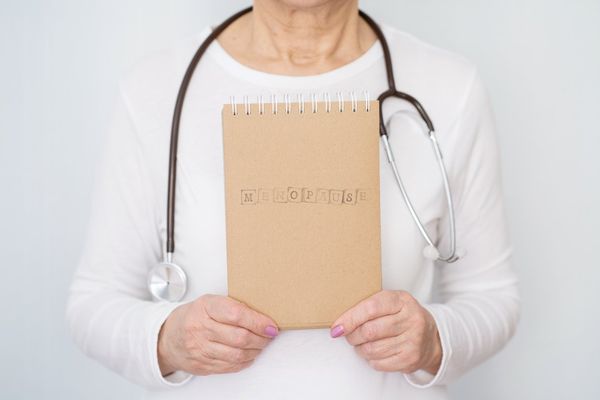People with irritable bowel syndrome (IBS) use the words "drastic," "unpredictable" and "life-altering" to describe their often painful, disabling and depressing condition.
Physical symptoms of IBS include cramping, abdominal pain, bloating, mucus in the stool, diarrhea and constipation.
"Oftentimes, patients experience associated symptoms—like bloating and urgency—which really can affect the quality of their lives," says Illinois-based gastroenterologist Jonathan Rosenberg, MD.
Many of the 35 million Americans who suffer with IBS are afraid to go out, afraid of not being able to find a bathroom at a moment's notice. "They know every bathroom's location between home and work," Dr. Rosenberg says.
IBS is one of the most common disorders diagnosed by doctors. Yet, many people suffer a long while before being diagnosed, hesitant to seek medical help because they may be embarrassed to discuss their bowel health with their health care provider.
According to the IBS in America survey conducted by the American Gastroenterological Association, 11 percent of people with IBS wait over a decade to discuss their issues.
Some don't even realize that their bowel pattern is abnormal. "They think it's normal to go six times a day or only once a week," says Dr. Rosenberg. And they may not be aware that there are safe and effective therapies to manage their symptoms, he adds (more on that below).
The good news is that, unlike other disorders like ulcerative colitis and Crohn's disease, having IBS does not make you prone to more serious disease. It won't change your bowel tissue or increase your odds of getting colorectal cancer.
But that doesn't mean IBS is not serious to those with it and the people around them.
Causes of IBS
Though the exact cause of IBS is unknown, some medical experts believe it might be caused by flawed communication between your brain and intestinal tract. This creates cramping and painful muscle contractions or spasms, which either speeds or slows the passage of stool through your intestines.
Your risk of having IBS increases if you are female, younger than 50 years old or have a family member who has IBS. It can be more prevalent around the time of menstruation, too.
Although no particular foods have been linked with IBS, symptoms can appear from eating. Often it may be the amount of food, rather than a specific food.
The International Foundation for Functional Gastrointestinal Disorders reports that symptom triggers include: large meals, high-fat meals, some fruits and vegetables, fried foods, coffee and other caffeine and alcohol.
Stress or other psychological issues like anxiety or depression, hormonal changes, some medications (like antibiotics), or an infection in the digestive tract (like salmonella) can also aggravate symptoms.
Diagnosing IBS
Because there are no structural problems or abnormalities in people with IBS, a diagnosis can be difficult. But the pain and discomfort are real, says Dr. Rosenberg.
Diagnosis is based on your symptoms, and a diagnosis is more likely if these symptoms have persisted for at least three months. Some other clues: your belly pain is present at least three days each month for at least three months; that pain is relieved by having a bowel movement; or pain is linked to a change in your stools' look or consistency.
Although IBS is considered a chronic condition, there may be times when your symptoms flare and other times when they're less severe or even disappear.
Treating IBS
Many people, before they reach out for help, try to manage IBS themselves with things like over-the-counter drugs and lifestyle modifications. These may work, depending on the severity and frequency of the condition.
Not everyone with IBS has severe symptoms. They may find these measures help them cope with symptoms:
- Learn to manage stress. Psychological therapy has been shown to help ease IBS symptoms. Also helpful: meditation, yoga, massage and exercise, which help with bowel function and overall general health.
- Aim for adequate exercise and sleep.
- Get plenty of fluids.
- Avoid delaying bowel movements or straining to have a bowel movement.
- Keep a food journal to chart the foods that trigger symptoms.
- Make dietary changes as needed. For some people, it may help to eliminate high-gas foods (like carbonated beverages and raw fruits and vegetables, especially cruciferous ones like cabbage, broccoli and cauliflower) or high-fat or high-fiber foods. Others may feel better with a high-protein, low-carbohydrate diet. Work with your health care provider or a dietitian to come up with a plan that helps you feel better.
- Seek counseling. Because stress can worsen symptoms, people who suffer from anxiety, depression or stress may benefit from professional counseling.
- Check your meds. Certain medicines (including antibiotics) may trigger IBS attacks. Talk with your health care professionals about your condition and your medication options.
IBS Medications
For more severe cases, your health care provider may suggest medications to manage your symptoms. There are many types of medications to treat symptoms of IBS, and the type you try will depend on whether you have IBS-D, with diarrhea predominant; IBS-C, with constipation predominant; or mixed or unspecified IBS.
Medications include:
- Antispasmodic anticholinergics can reduce intestinal spasms and diminish pain, bloating and discomfort associated with IBS. Two examples include dicyclomine (Bentyl) and hyoscyamine (Levsin).
- Eluxadoline (Viberzi) and rifaximin (Xifaxan) are new treatments approved by the Food and Drug Administration to manage the most common symptoms of IBS-D, diarrhea and abdominal pain or cramping.
- Alosetron (Lotronex) is approved only for use in female patients who have severe diarrhea and abdominal pain as symptoms of IBS.
- Linaclotide (Linzess) is an FDA-approved prescription medicine to treat IBS-C in adults. It may ease belly pain and make it easier to have bowel movements.
- Lubiprostone (Amitiza) is used to treat severe constipation and IBS in women over 18 who have not responded to other treatments.
- Antidiarrheals such as loperamide (Imodium) can help control diarrhea and may help with loose, frequent stools or urgency.
- Bulk laxatives (such as fiber) may help with constipation. These include psyllium (Metamucil), methylcellulose (Citrucel) and calcium polycarbophil (Equalactin). A prescription laxative, lubiprostone (Amitiza) may also lessen constipation.
- Tricyclic antidepressants are often used for symptoms of pain and diarrhea. They may also help with sleep disturbances, as well as fibromyalgia, which is commonly seen with IBS.
- Selective serotonin reuptake inhibitors (SSRS) may be prescribed to alleviate the depression and anxiety suffered by some IBS patients.
- Anti-anxiety medications help reduce anxiety that can worsen IBS symptoms. Physicians occasionally prescribe short-term use of anti-anxiety drugs for people with anxiety that is worsening their IBS.
- Antibiotics may play a role in the treatment of IBS, but the exact role is unclear. Some people whose IBS symptoms are caused by an overgrowth of bacteria in the intestines may benefit from antibiotics, but no antibiotic is yet approved for this use.
Other suggested reading:
Gastroesophageal Reflux Disease (GERD)
- Natural Remedies for Irritable Bowel Syndrome ›
- Tips for Coping With IBS Symptoms ›
- Fast Facts: What You Need to Know About Irritable Bowel Syndrome (IBS) ›
- Irritable Bowel Syndrome (IBS) Hub - HealthyWomen ›







